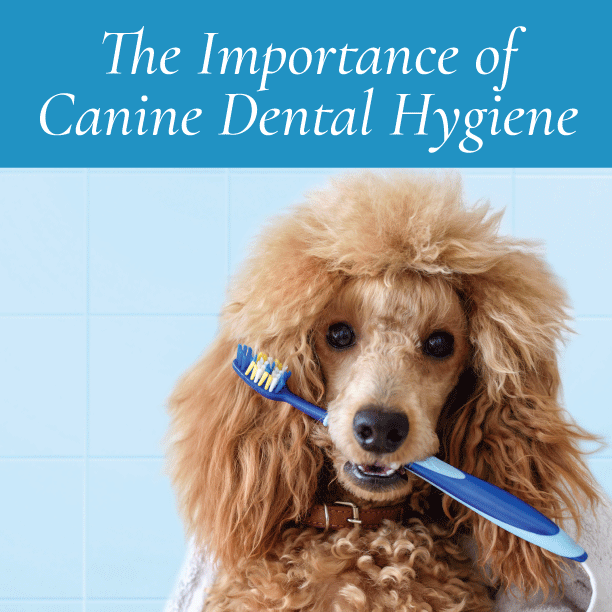When it comes to taking care of our beloved furry friends, dental hygiene is often overlooked. However, just like humans, dogs require proper oral care to maintain good overall health. Neglecting your dog's dental hygiene can lead to a range of dental problems, discomfort, and even serious health issues. In this blog post, we will explore the significance of canine dental hygiene and provide practical tips for keeping your dog's teeth and gums healthy.
The Importance of Canine Dental Health:
Preventing Dental Disease: Dental disease is one of the most common health issues in dogs. It includes conditions such as periodontal disease, gingivitis, tooth decay, and oral infections. Neglected dental hygiene can lead to plaque and tartar buildup, which can cause inflammation, pain, tooth loss, and even systemic infections that affect vital organs like the heart and kidneys.
Promoting Overall Health: Good oral health is closely linked to a dog's overall well-being. Oral infections and bacteria can enter the bloodstream, potentially causing systemic health problems. By maintaining proper dental hygiene, you can help prevent the spread of harmful bacteria and reduce the risk of secondary health issues.
Preventing Pain and Discomfort: Dogs, just like humans, can experience dental pain and discomfort. Dental issues can affect their ability to eat, chew, and play comfortably, leading to decreased appetite, weight loss, and behavioral changes. Regular dental care can help prevent these painful conditions and ensure your dog's quality of life.
Tips for Canine Dental Hygiene:
Regular Brushing: Brushing your dog's teeth is one of the most effective ways to maintain their dental health. Start by gradually introducing your dog to toothbrushing, using a pet-specific toothpaste. Aim to brush their teeth daily or at least three times a week. Use a soft-bristled toothbrush or a finger brush designed for dogs, focusing on the outer surfaces of the teeth and the gum line.
Chew Toys and Dental Treats: Providing appropriate chew toys and dental treats can help keep your dog's teeth clean and stimulate their gums. Choose toys that are specifically designed to promote dental health, such as those with textured surfaces or ones that help remove plaque. Dental treats can also aid in reducing tartar and freshening breath.
Professional Dental Cleanings: Regular professional dental cleanings by a veterinarian are essential for maintaining optimal oral health. These cleanings involve a thorough examination, scaling, and polishing of your dog's teeth while under anesthesia. Veterinary professionals can detect and treat dental issues early on, preventing potential complications.
Regular Oral Examinations: Routinely examine your dog's mouth for signs of dental problems. Look for red or swollen gums, bad breath, tartar buildup, loose or broken teeth, or any unusual lumps or bumps. If you notice any abnormalities, consult with your veterinarian promptly.
Balanced Diet: A nutritious diet plays a crucial role in maintaining oral health. Providing a balanced diet with appropriate chewing consistency can help reduce plaque and tartar buildup. Consult with your veterinarian to ensure your dog's diet supports their dental health needs.
Caring for your dog's dental hygiene is an essential part of responsible pet ownership. By prioritizing their oral health, you can prevent dental disease, promote overall well-being, and ensure your furry friend has a healthy and pain-free smile. Implement a regular dental care routine, including brushing their teeth, offering dental treats and toys, scheduling professional cleanings, and monitoring their oral health. Remember, a little effort and attention to your dog's dental hygiene can go a long way in ensuring their long-term health and happiness.

